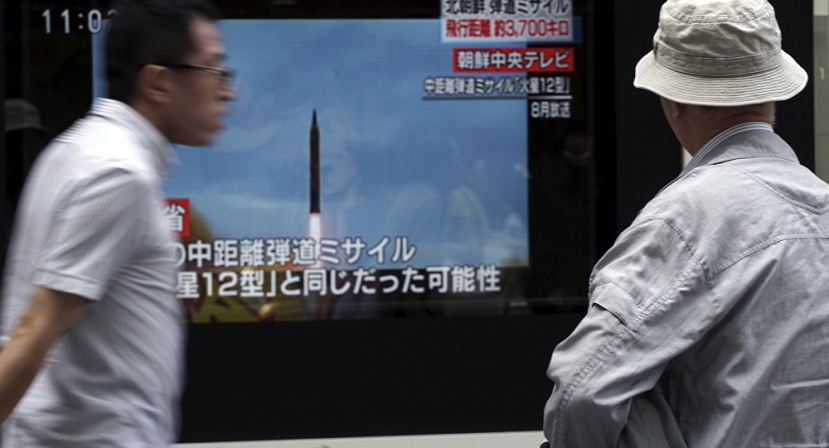North Korean Official: We Won’t Negotiate Until We Can Strike US East Coast
17.10.2017 13:43
 North Korean Official: We Won’t Negotiate Until We Can Strike US East Coast
North Korean Official: We Won’t Negotiate Until We Can Strike US East Coast
An anonymous North Korean official has reportedly told CNN that diplomacy to end the current crisis is off the table until the Democratic People’s Republic of Korea can “counter” US aggression - by developing a missile that can reliably strike the US East Coast and urban centers like Washington, DC, and New York City.
"Before we can engage in diplomacy with the Trump administration, we want to send a clear message that the DPRK has a reliable defensive and offensive capability to counter any aggression from the United States," the official reportedly told CNN on Tuesday.
Top diplomats in the US and Japan agreed on Tuesday to continue to use economic pressure against North Korea in an attempt to get the rogue nuclear state to sit down at the negotiating table. "We must, however, with our allies in Japan and South Korea and elsewhere, be prepared for the worst should diplomacy fail," said US Undersecretary of State John Sullivan in a Tuesday joint press conference with Japanese Deputy Foreign Minister Shinsuke Sugiyama.
While the American people are relatively amenable to the notion of war with North Korea (58 percent said they'd support military action if diplomatic and economic means failed, a recent Gallup poll revealed), the people of Japan and South Korea feel quite differently — as they have much more to lose from a renewal of the Korean War.
Reflecting this, US ambassador to South Korea Ahn ho-Young assured Seoul that Washington would only use military action as a last resort against the North. "The goal of the Trump administration's sanctions and pressure campaign is ultimately a peaceful solution to the North Korean problem," Ahn said. " Whether it's Defense Secretary James Mattis or Secretary of State Rex Tillerson, they all say the same thing."
One American leader who doesn't seem to have gotten the memo is US President Donald Trump, who tweeted in August that "talking is not the answer" and that the DPRK "wouldn't be around for much longer."
On Monday, the US began 10 days of joint naval drills with South Korea focusing on minesweeping operations. In the past, large military drills from the South have been answered with missile and nuclear tests by the North. It has been slightly over a month since the last DPRK missile test — an intermediate-range ballistic missile that provocatively flew over parts of northern Japan before falling into the sea.
For its part, the DPRK has long maintained that it would never be the first to initiate nuclear hostilities and that it maintains its weaponry purely as a defensive deterrent — and the ability to reach the US capital with its weapons would be a powerful deterrent.
As the stand-off passes the six-month mark with no signs of waning, North Korean leaders don't seem likely to sit down anytime soon. Kim In-ryong, the North Korean deputy ambassador to the United Nations, warned that "nuclear war can break out at any moment," as the stand-off between North Korea and the US bloc "has reached the touch-and-go point."
He added that Pyongyang possessed the right to build a nuclear arsenal for self-defense purposes because his nation has been the subject of "an extreme and direct nuclear threat" since the 1970s.
"Unless the hostile policy and the nuclear threat of the US is thoroughly eradicated, we will never put our nuclear weapons and ballistic rockets on the negotiating table under any circumstances," Kim said, according to Reuters.
Meanwhile, the developed nations of the world continued to squeeze North Korea economically, with the European Union announcing a new round of sanctions on Monday in protest of the DPRK's rapidly advancing missile program. This included a total ban on EU investment into the North Korean economy.
Russian President Vladimir Putin also joined in, officially implementing UN Security Council sanctions against the DPRK.
And on Thursday, White House Chief of Staff John Kelly described the North Korean challenge as "manageable," though he added that would not be the case forever. Someday, Kelly said, North Korean might be a much larger problem to the US if their missile program "grows beyond where it is today." He also warned that the reclusive East Asian nation is "developing a pretty good nuclear reentry vehicle" for its intercontinental ballistic missiles.
